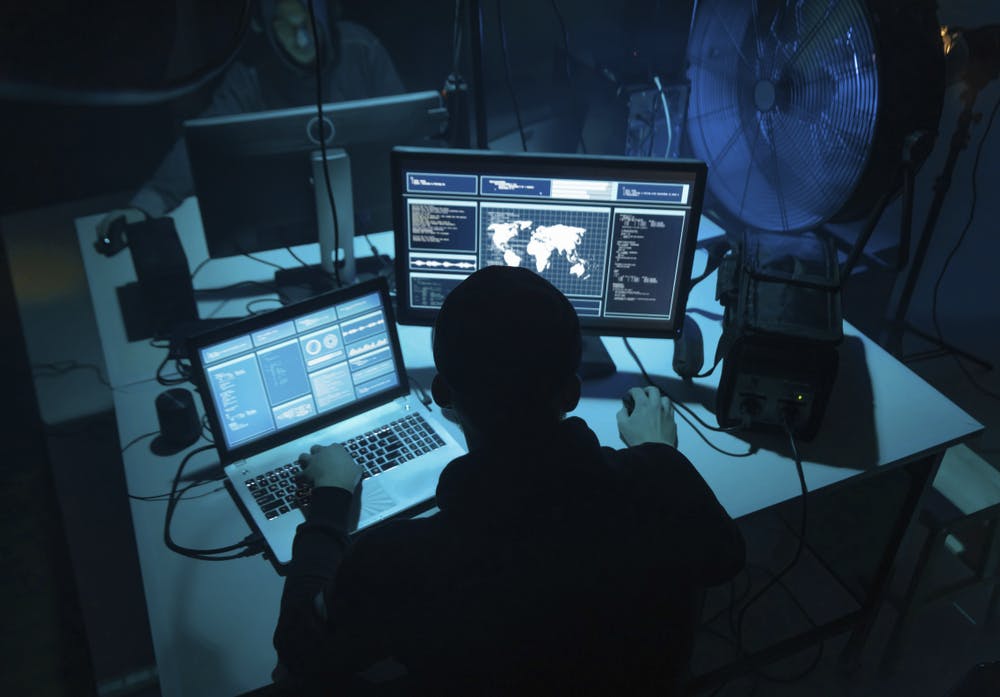DOD Under Secretary Seeks New Cyber Sensor, Autonomous Flight System
Defense leader Heidi Shyu created a new “strategic capital director” with the responsibility of finding funding for small businesses.

Defense Department Under Secretary for Research and Engineering Heidi Shyu outlined a few of her wishlist items for new cybersecurity and artificial intelligence programs during her keynote Wednesday at the Special Operations Forces Industry Conference (SOFIC) in Tampa, Florida.
Like many of the U.S. Special Operations Command (SOCOM) leaders who have spoken at the conference, Shyu focused more of her time highlighting information technology, cyber and intelligence systems programs versus platforms and weapons.
Sitting on stage with Lisa Sanders, SOCOM’s director of science and technology, Shyu was asked to identify cybersecurity and AI programs she is excited about. She said she couldn’t share too many details because of security clearances, but she did hint at two.
First, she identified the need to further develop AI technologies to fly autonomously in contested airspaces. The military has sought autonomous search and rescue aircraft to fly and pick up critically injured troops behind enemy lines.
Shyu also offered insight into the cybersecurity technologies she wants to use her budget to further develop.
“I’m interested in pushing technology toward developing a single sensor that has the ability to listen, ability to jam, ability to communicate, ability to inject — all in one,” Shyu said.
Currently, DOD has a wide variety of systems that tackle these security tasks, but Shyu made sure to emphasize that she wants to have one sensor achieve all four — listen, jam, communicate and inject.
Shyu highlighted a new fund called the Rapid Defense Experimentation Reserve. As the name implies, Shyu said the reserve will be spread across DOD to boost experimentation on multiple programs. DOD leaders requested $377 million over five years to fund the reserve, according to DOD’s budget request documents.
Shyu said DOD has already received over 200 white papers seeking funding through the reserve and has kickstarted the process to review those requests and issue funding in 2023.
Similar to the message delivered by SOCOM leaders all week, Shyu made sure to highlight the need to collaborate with small businesses. She said she visited SOCOM’s small business innovation tank, SOFWERX, in nearby Ybor City and came away impressed by the level of integration with users.
However, Shyu said she’s worried about small businesses running out of capital after using their funding through the Small Business Innovation Research (SBIR) program.
Shyu said DOD needs to help small businesses find capital to keep their businesses afloat beyond the funding they receive through the SBIR program. She said she’s created a new position called the “strategic capital director” with the responsibility of finding funding for these small businesses.
The Air Force has a program, Shyu highlighted in her remarks. She explained how the service matches promising programs with the matching program executive office, which then provides an additional $1 million. The service then connects the company with partner venture capital firms that matches the total funding the company has already received.
“One of the things I’d like to do is take the process and the methodology and let’s bring it across DOD,” Shyu said.
This is a carousel with manually rotating slides. Use Next and Previous buttons to navigate or jump to a slide with the slide dots
-

The Next AI Wave Requires Stronger Cyber Defenses, Data Management
IT officials warn of new vulnerabilities posed by AI as agencies continue to leverage the tech to boost operational efficiency.
5m read -

Federal CIOs Push for ROI-Focused Modernization to Advance Mission Goals
CIOs focus on return on investment, data governance and application modernization to drive mission outcomes as agencies adopt new tech tools.
4m read -

DOD Can No Longer Assume Superiority in Digital Warfare, Officials Warn
The DOD must make concerted efforts to address cyber vulnerabilities to maintain the tactical edge, military leaders said at HammerCon 2025.
4m read -

Tracking CIOs in Trump's Second Term
Stay informed on the latest shifts in federal technology leadership as new CIOs are appointed and President Trump's second term takes shape.
6m read -

Inside Oak Ridge National Lab’s Pioneer Approach to AI
Energy Department’s Oak Ridge National Lab transforms AI vulnerabilities into strategic opportunities for national defense.
22m listen -

AWS Summit: Innovation Accelerates IT Delivery at DOD
Marine Corps Community Services is tackling outdated IT processes with agile development and cutting-edge cloud security to deliver mission-critical capabilities faster.
12m watch -

AWS Summit: NIST Secures High-Performance Computing Against Evolving Threats
NIST’s Yang Guo reveals the broad attack surface of high-performance computing and explains developing guidance and future-proofing security strategies.
9m watch -

Trump Overhauls Federal Cybersecurity with New Executive Order
The new directive aims to strengthen digital defenses while rolling back "burdensome" software requirements and refocusing AI security.
3m read -

AWS Summit: Forging Successful Cloud Modernization Partnerships
Industry leaders share insights on the critical role industry partnerships have in enabling government agencies to navigate procurement challenges for cloud and zero trust solutions.
24m watch Partner Content -

CISA's CVE Program and Why it Matters for Zero Trust
The vulnerability program provides the cybersecurity community visibility into software as part of a key pillar of CISA's zero trust model.
5m read -

Air Force, Coast Guard Talk Data Security Efforts for AI Development
The services' AI initiatives include efforts like creating clean training data, countering data poisoning and bridging siloed teams.
4m read -

DHS Secretary Urges Congress to Reauthorize CISA 2015
Federal leaders highlight CISA 2015's role in strengthening public-private partnerships and defending against evolving cyber threats.
3m read
















